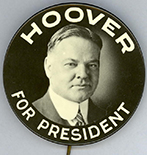“It is the maxim of every prudent master of a family, never to attempt to make at home what it will cost him more to make than to buy . . . . If a foreign country can supply us with a commodity cheaper than we ourselves can make it, better buy it of them with some part of the produce of our own industry, employed in a way in which we have some advantage.”
-Adam Smith, An Inquiry into the Nature and Causes of the Wealth of Nations, 1776
IPI believes the United States should aggressively pursue trade liberalization, which includes a willingness to lower our own trade barriers even when other countries do not respond reciprocally. Ideally, those efforts include multilateral agreements, such as the Trans-Pacific Partnership, but bilateral agreements can also promote freer trade.
American consumers bear the brunt of the protectionist impulse through higher prices on consumer goods, and American workers are best served when liberalized trade policies facilitate the export of American products throughout the world. At a time when protectionist sentiments are growing, it is important to assert that the U.S. and its workers have nothing to fear from trade, and everything to gain.
Trade Is Good and Normal
Free trade between people who specialize in different things is the natural state of affairs. Trade agreements provide the rules and remedies should one party try to take advantage of the other. We thought these things were obvious, but apparently not.
The Tangled Politics of Trump's Speech Blasting "Globalization"
"Dear GOP delegates: You cannot nominate someone who endorses these positions," Tom Giovanetti, the president of a free market think tank, tweeted, adding, "Trump would turn the Republican Party into the party of economic know-nothings."
Here's the President Donald Trump Most Resembles
The former Republican president who Trump most resembles isn’t Reagan, but Herbert Hoover, who served from March 1929 to March 1933, when his reelection bid was defeated by Franklin D. Roosevelt.
Free Markets = Free Trade = Free Markets
Free markets and free trade are two sides of the same economic coin; those who claim to support free markets should also support free trade.
The Social and Political Cost of Slow Economic Growth
The American people are blaming other countries and other people for a slow-growth wound that is self-inflicted.
Further Abandoning the Rule-of-Law
Yet again, the Obama administration has operated outside of the rule-of-law, which makes the US a less certain place for investment.
Trump's New Taxes
Donald Trump is the only Republican presidential candidate gleefully promising to raise taxes.
When Democrats Supported Free Trade--100 Years Ago
Democrats were once the principled voices in support of free trade; now they support protectionism and trade barriers that only lead to trade wars.
U.S. Should Counter Russia With Mexico, Canada Oil Alliance
A free-nation oil-exporting alliance could lay the groundwork for a serious challenge to a Russian-led Middle East bloc and give our allies a viable energy alternative to Russia's effort to create an energy stranglehold.
You Can't Believe China's Government Data
For all its pretense to want to join the developed countries as an economic equal, China has never learned the lesson that competition, transparency and the rule of law lay the foundation for prosperous economies — and good business relations.











